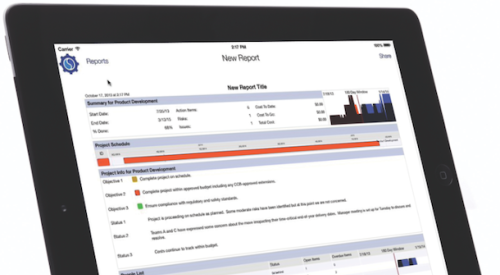As builders work to sell more homes, they often look for that magic bullet. Over the last few years, the popularity of social media has become highly visible and somewhat controversial. To put this all in perspective, I reached out to colleagues who have expertise and insight into the subject of social media as it relates to home building.
Our panel of experts includes: Meredith Oliver, president, Creating Wow Communications, Raleigh, N.C.; Mollie Elkman, vice president, Group Two Advertising, Philadelphia; Tim Kassouf, vice president, G.1440, Baltimore; and Kristi Allen, director of Internet marketing, McArthur Homes, Salt Lake City.
I asked each expert to explain the purpose of social media and provide suggested best practices and assessment/benchmarking. Here is what they have to say.
The Purpose of Social Media
Meredith Oliver: With 850 million active users on Facebook and two-thirds of consumers reporting that social media influenced a buying decision, home builders must utilize social media as one of many channels to connect and communicate with prospective home buyers, current homeowners, and valuable trade partners, like Realtors.
Mollie Elkman: Social media is the way many people communicate and share information today. It provides an opportunity for builders to have an active presence in the conversations that are taking place and to engage in real-time conversations with prospects and homeowners. The key is to have a strategy. Don’t just post content for the sake of posting content. Establish your goals up front and make sure every post is aligned with attaining those goals.
Tim Kassouf: The purpose of social media/marketing for home builders must be to ultimately increase sales. This could be new sales, referral sales, or repeat business over the course of several years. Many will define other objectives, like exposing your brand, increasing referrals, or improving customer relationships, but the only reason these are valuable is if they can be tracked to measurable sales.
Kristi Allen: The first thing a builder should do before beginning any social media campaign is to establish their goals. I outline all goals for the project and what the ROI should be. There is no point in just jumping into a blog or creating a Facebook account if you don’t first know why you are doing it.
Social Media Best Practices
MO: Social media is best used in a balanced approach of offline and online marketing and advertising. It is one aspect of a multi-pronged approach. Social media works best when updates are timely and consistent. Posts should be conversational and light. Don’t oversell. Videos and photos always get the most comments and “likes.” Feature your fans and they will participate to a greater degree.
ME: There are many ways to implement specific practices to reach suggested goals, including:
- E-blasts — promotion through those already associated with the company
- Contests — seasonally or in conjunction with other promotions
- Content — remain relevant through posts and keep conversations going
- Linking to other pages through articles and “likes”
- Posting links to your website at least twice weekly
- Providing easy access to your website URL at all times.
These approaches will help grow your network, increase impressions, increase website traffic, generate traffic to your sales center, and proactively build relationships online before your prospects get to the sales center.
TK: A good strategy will be unique to each builder. Start by considering your market, plan opportunities to reach that market, test, measure results, and test again. Here are some things to keep in mind:
- Consider the time spent in any social strategy.
- Be sure to dedicate enough time to be effective, but be careful not to waste time that could be better spent in other areas of your business.
- Consider your long-term and short-term goals when planning your strategy and use these to measure results.
KA: Each article we post on our blog (which is hosted on our website) contains carefully crafted keywords. When these articles are shared on Facebook, they bring traffic to our website and increase our SEO (search engine optimization) efforts.
As an example of having a specific goal in place for a social media campaign, we recently did a promotion asking our homeowners to submit a short essay telling us why they loved their new McArthur Home. The top 10 winners received a complimentary family photo shoot from a well-known photographer in the area, and I created a short video testimonial of each of the finalists. The photos, videos, and essays were posted on our blog, and we ran a competition to see who could get the most people to vote for them on Facebook. In order to vote, people had to first “like” our page.
Content is key. What people are sharing about our company is much more important than what we are sharing. If we are putting out quality content and beautiful photos of our homes, others are going to do much of the work for us.
Assessing and Benchmarking Your Social Media's Success
MO: Facebook provides a free report, called Insights, that offers detailed information on the page activity. Review this report once a month. If you have a high number of “unlikes,” then examine your posting topics and frequency. Perhaps you are over posting or posting on topics that are not of interest to your audience. Social media dashboard software like HootSuite offers good reporting on Twitter activity. You can monitor how many clicks your Tweets received and where your Twitter traffic is coming from. Google Analytics offers social engagement reporting for your website, which will monitor how engaged website visitors are with your content.
ME: With Facebook’s new “timeline” format, home builders have an even greater opportunity to track social media results. Utilizing the Insights reporting tool for your Facebook account can provide very valuable information about your network demographics. You have access to information such as the specific user demographics of your network; which content you post is most effective; and the “virality” of your messages, among other metrics. Use Google Analytics to track traffic sources to your website. Run specific promotions through social media to track traffic linked to your “contact us” page, and run trackable ads that lead to your website rather than your Facebook page. Try to funnel traffic to your sales center.
TK: Social media marketing isn’t always about the number of visitors that came from Facebook, Twitter, etc. It’s common for a social media strategy to be more focused on building your brand and reputation than on directly driving new leads, but this doesn’t mean you shouldn’t measure the impact of that brand exposure. When you have a well implemented social media campaign, leads from searches and phone calls are higher. Here are some best practices:
- Track your total sales, average sales amount, and the average cost to acquiring a sale (or whatever key metrics are most valuable to your overall business goals). Look at these numbers for six months to a year before you were engaged in social media, and six months to a year after implementing a specific social media strategy.
- If you have a lot of activities in social media but no impact on these key metrics, consider revising your strategy.
- Consider the time and money spent on social media. Are the results worth this expense?
In summary, as I work with home builders all across the globe, I know this to be true: social media is here to stay and will only become more crucial for communicating with and attracting potential buyers. Consider the advice provided by the experts who have contributed to this article. Create a marketing and traffic-generating strategy that includes social media, implement some of the best practices mentioned above, and make sure to track and measure your results.
One word of warning: Don’t let social networking become “socialized not working.” Don’t let Facebook become “in your face book,” and don’t “Twitter away the day” just for the fun of it.
Note: I have created a seven-point benchmark measuring spreadsheet to assess each aspect of social media activity, all the way through provable sales from the effort. Email me for the spreadsheet.











